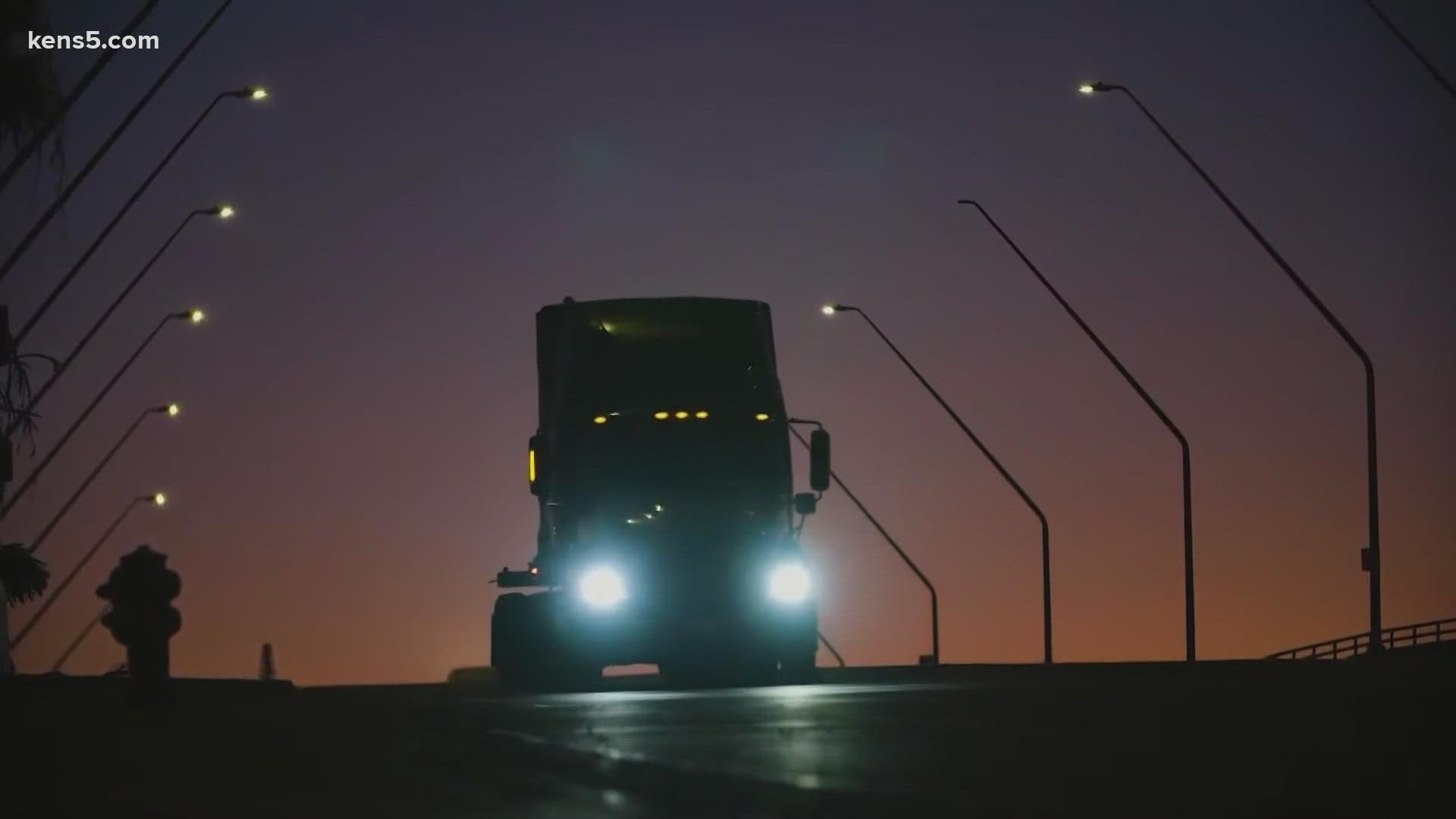SAN ANTONIO — The trucking industry needs young blood.
The American Trucking association estimates the U.S. is 80,000 truckers short of where it needs to be and, according to one trucking industry expert, it has a lot to do with an ageing workforce.
The average age of a trucker in the US is over 50. As many prepare to retire, the shrinking population of drivers is likely to push inflation even higher.
"If you want to attract bees, you need to put some flowers out," said Sisu Energy CEO Jim Grundy.
Grundy's company specializes in trucking for the energy industry. He spoke with KENS 5 a year ago about how a shortage of drivers would drive inflation.
"You’re talking about all your retail goods such as clothing, food, toilet paper. You name it," he said in May of 2021.
Since then, he said, the labor market for truckers has gotten even tighter.
"The aging workforce of the truck driver in today’s market is well over 50,” he said. “So, you have guys retiring.”
Grundy said the pandemic halted classes meant to teach new drivers for the past few years, due to them typically being held in person.
“The month of January, I grossed about $50,000," said owner-operator Andre Powell.
Powell owns two trucks. Working with Sisu Energy, he's already made over $100,000 this year even after the cost of operations. That has a lot to do with trucking for the energy industry being more lucrative than other types of shipping, and the fact that he has a background working in the oil and gas industry.
Grundy said when other kinds of trucking companies struggle to find workers, it has a ripple effect on the rest of the economy, causing price increases and product shortages.
"What's being left out is the lowest-paying freight, or general paper freight, or general goods that hasn't traditionally payed a whole lot, but it's easy,” Grundy said. “That stuff's getting left on the docks. That stuff’s being left at the ports."
Grundy says the government may need to step in to find a way to attract young blood to help supply other industries or inflation will continue to climb.
"I think it’s going to take some intervention. I think we need to make the industry and the profession much more attractive,” he said. “There needs to be a carrot that we can all chase and incentives that bring people to the market.”
Powell says when he was growing up, he saw truck drivers as heroes. He says the industry will need to romanticize the profession to bring new people in.
“I remember a truck that I fell in love with when I was younger. That’s the truck that I’m actually driving right now,” Powell said. “Looks like, you know, Optimus Prime, like a Transformer. My kids, they love the truck.”
Grundy fears that if the truck driver shortage doesn't level out, people on fixed incomes won't be able to handle the price increases that result.
“For the sake of the economy, for the sake a recovery, for the sake of folks on fixed incomes out there, someone better do something pretty quick here,” he said. “The fix is months, if not years away.”

